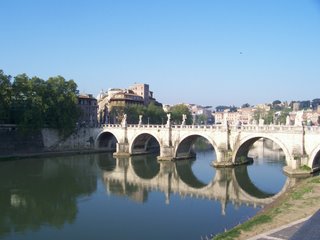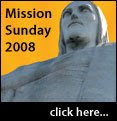Little boxes...and stamps!
The Vatican Post Office has some of the most beautiful stamps that I have ever seen. They really are a stamp collector’s delight…or were until this morning when I wanted to post two letters. I passed the Swiss Guard at St. Anne’s gate, waving my yellow and white ID and receiving a smile and a salute in return. The weather was warm and sunny as I strolled past the Vatican Bank and looked towards the supermarket and the clinic. Straight ahead was the massive arch leading through to the courtyard where those who are entitled (and that includes the Vatican Fire Brigade) park their vehicles around a massive bowl-like fountain….but I was actually heading towards the Post Office.
Putting stamps on two letters should have been easy. Buying them, certainly, was simple. Sticking the stamps on the envelopes was another matter. They didn’t stick. No glue! It can’t have been a new problem because it was all too easy for the man behind the counter to pull out a pot of glue and a brush. Seconds later, the letters went into the sack as the postman emptied the box.
However impressive might be one’s surroundings, there are some things that are a normal part of daily life and don’t change too much, regardless of the setting. Every single one of us wakes up in the morning and faces the day ahead, not knowing what it will bring, but most of us are fairly sure that it will start with soap, water and a brush and/or comb. There’s a certain amount of security in routine, just as much as it can also stifle and suffocate.
Do you remember the song about the little boxes? It could be fixing you in a particular era if you do…. It went,
“Little boxes on the hillside,
Little boxes made of ticky-tacky,
Little boxes, little boxes,
Little boxes, all the same.
There's a green one and a pink one
And a blue one and a yellow one
And they're all made out of ticky-tacky
And they all look just the same.”
Isn’t it sometimes rather pleasant to dare to be different? What would be the reaction of others if, instead of dressing normally in the morning, you decided to go to work with your clothes on back-to-front. Would others think you mad or refreshingly different? Does it really matter? It was inconvenient that the stamps wouldn’t stick on the envelopes this morning. They weren’t doing what they were meant to do.
The ‘penny catechism’ used to say that our purpose in life is “to know, love and serve God in this world and to be happy with him forever in the next.” …but we are allowed to thoroughly enjoy him in this world too!
God bless,
Sr. Janet




















